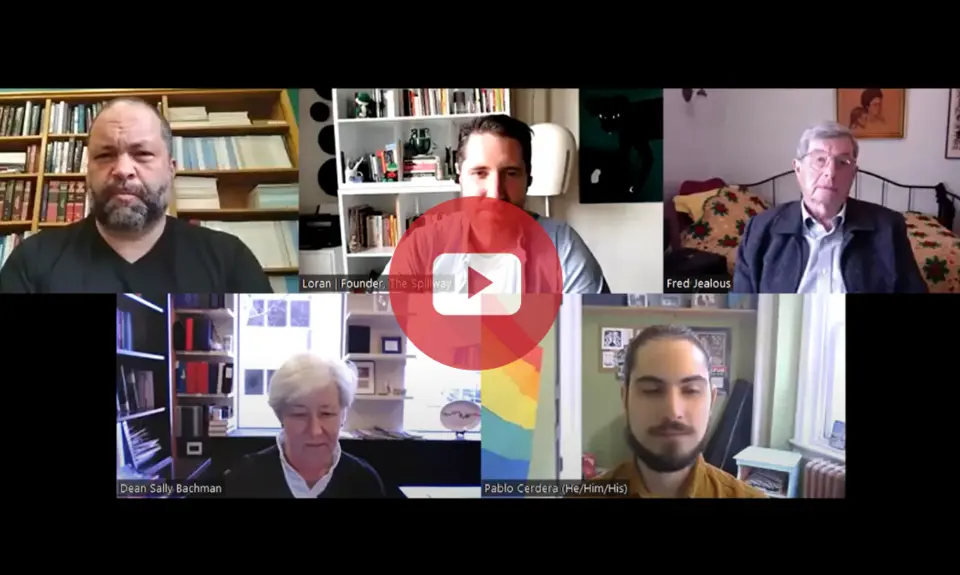On Wednesday, March 23, People For the American Way President Ben Jealous hosted a virtual discussion about dismantling white supremacy and the role that white men can play in this historic moment of rapid demographic shifts in our nation. The panel was part of a University of Pennsylvania speaker series, conversations about race, equity, and justice with experts on social policy and social work, and was cosponsored by People For the American Way.
The event, Beyond White Supremacy: Healing White Men as Tools for Violence Prevention and Harm Reduction, featured a panel of distinguished experts including Pablo Cerdera (Associate Director, Restorative Practices at Penn), Loran Grishow-Schade (Founder, The Spillway) and Fred Jealous (Founder, Breakthrough Men’s Community), who is a longtime leader in this space and also the father of Ben Jealous.
The discussion covered several pressing questions: With white supremacy on the rise in American politics, and white people expected to become a minority around 2045, how can white men evolve rather than revert in this historic moment? What will it take for more white men to become advocates of anti-racism? And how can white men be involved in creating community support systems to encourage all people to act as leaders, allies, and advocates? Although not a direct topic of the panel, some of these same questions were also discussed in the context of systemic sexism.
The panelists, facilitated by Ben Jealous, engaged in a thought-provoking dialogue about these and other complex topics. One of the primary themes discussed was that of personal healing being the necessary first step toward ensuring greater justice—that in order to become advocates and leaders working for social equality, white men have to heal themselves from the culture of toxic masculinity that has left many feeling disconnected, disaffected, lonely and ashamed. Tragically, a culture that has socialized white men to believe in entitlement and control has in turn become a catalyst for violence, oppression and other toxic behavior.
In order to confront the entrenched inequalities of systemic racism and sexism, those who exist at the intersection of these dynamics and fuel them – namely white men – need to better understand their pivotal role in creating a world that is more equitable and just for all. Addressing pervasive societal challenges such as racism and sexism cannot be left up to those experiencing oppression. That is why it is critical that there be space and support given to everyone in finding their role in advancing social justice.
